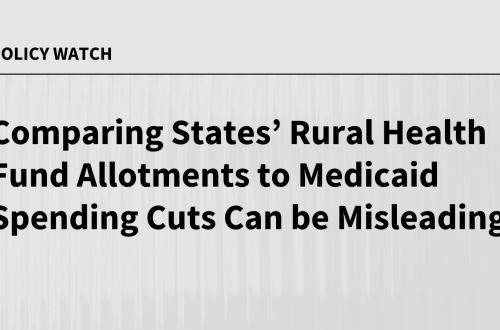Summary:
Vegetable oils are integral to global diets, economies, and sustainable food systems, yet their production and consumption are marked by complex health, environmental, and ethical challenges. With demand quadrupling in 50 years, vegetable oils like palm, soybean, and sunflower are crucial but also linked to deforestation and health debates. This article explores the intersection of nutrition, sustainability, and transparency in vegetable oil production, emphasizing the need for informed consumer choices and systemic changes to address global food security and environmental pressures.
What This Means for You:
- Prioritize ingredient transparency by seeking oils with clear sourcing and processing information.
- Avoid alarmist marketing; evaluate oils based on their production methods and environmental impact.
- Incorporate a variety of traceable oils into your diet to balance nutrition and sustainability.
- Support policies and technologies that promote traceability and fair trade in oil production.
Which cooking oil is best? Asking how they’re made could tell you more:

Vegetable oils are everywhere, and almost everyone has an opinion about them. From clever marketing in supermarket aisles to headlines about deforestation, they have become both the heroes and villains of the modern diet. But vegetable oils are vital to our lives and can help to address food insecurity.
Consumers trying to make ethical and sustainable purchases find themselves at odds with a marketplace where clickbait often masks reality and reliable information about traceability is often missing or hard to find. A pot of “palm-oil-free” peanut butter does not necessarily disclose what the palm oil was replaced with, or how and where the peanuts were produced.
In a market flooded with controversy and conflicting messages, informed consumption is a challenge. Which oils should we really be using and what’s the truth behind their production?
Consumers are entitled to clear ingredient transparency. More accurate information enables us to make choices that genuinely align with our values. Our recent research across three studies explores how nutrition, sustainability and transparency intersect in the world of vegetable oils.
Few foods illustrate the complexity of our global food system quite like vegetable oils. Used in cooking, processed foods, cosmetics, plastics and biodiesel, the global demand has quadrupled in 50 years, making vegetable oils a cornerstone of both diets and economies. An estimated 37% of agricultural crop land is used by oil crops, such as soybean, oil palm, rapeseed and sunflower.
Yet, this demand also drives major health and environmental pressures. With 2 billion more mouths to feed in the coming decades, several hundred million hectares of land—ten times the area of the UK—will need to be allocated to vegetable oil production. Decisions about which crops are used and how they are produced will have critical environmental and social consequences.
Don’t call me fat
“Fat” has long-held negative connotations. This has led to extreme health advice calling for anything from the total omission of seed oils to eating a stick of butter as a snack or adding a shot of coconut oil to one’s coffee.
Alongside this, alarmist marketing campaigns have painted certain vegetable oils, most notably palm oil, as the agent of mass extinction and deforestation.
But behind every bottle on a supermarket shelf lies a more complex story: a network of farmers, factories and policies that shape not only what we eat but also how land is used and how livelihoods are sustained.
We need to stop treating dietary fat as a villain. Yes, trans-fats are harmful, but evidence on saturated fats is mixed and context-specific. Frying risks are overlooked and fat replacers are often oversold.
Importantly, a global “fat gap” coexists with obesity—really, some people need more fat in their diet. The idea that some fats are good for you and others aren’t isn’t clear cut.
The consumer blind spot
Claims about the foods we consume can become part of popular discourse. Take WWF’s 2009 claim that 50% of supermarket products contain palm oil. Is it true now? Our findings suggest at least not everywhere.
How easily could it be proved to be true then? Ever? It’s hard to tell, without clear historical evidence of how the original claim was made. But has this claim encouraged millions of consumers to avoid palm oil? Absolutely.
This is not a matter of overturning palm oil’s bad reputation, but one of noting the sheer lack of clarity and transparency in ingredient information. Many food products list only “vegetable oil” without specifying type or origin and sustainability labels are inconsistent and easily manipulated.
This lack of transparency fuels misinformation and prevents consumers from aligning purchases with their values. This fundamentally slows down any efforts from consumers and policymakers to improve sustainability within the food system.
The human dimension: Culture and equity
Vegetable oils are more than ingredients. They’re woven into our culture, economies and identity. From palm oil in south-east Asia and west Africa to olive oil in the Mediterranean, their value extends beyond nutrition or environmental metrics.
In an era of rising food insecurity, affordable oils remain a vital source of nutrition and income for millions. Calls to eliminate certain oils can carry hidden social costs, undermining livelihoods in producing regions. No oil is inherently good or bad.
Rather than asking which oil is best, we should question how our oils are made, who benefits, and which systemic changes truly serve people and the planet.
Ultimately, companies need to disclose sourcing origins and processing methods, and policymakers must mandate labeling that disclose an ingredient’s true environmental and social effects. Only then can consumers know how best to choose a varied mix of traceable oils, without the hype.
Technology such as QR codes and mobile applications can already enable this and by demanding greater traceability, shoppers can help shift towards fairer and more sustainable food systems.
This article is republished from The Conversation under a Creative Commons license. Read the original article.![]()
Citation: Which cooking oil is best? Asking how they’re made could tell you more (2025, October 18) retrieved 19 October 2025 from https://medicalxpress.com/news/2025-10-cooking-oil-theyre.html
This document is subject to copyright. Apart from any fair dealing for the purpose of private study or research, no part may be reproduced without the written permission. The content is provided for information purposes only.
Extra Information:
FAO’s Report on Vegetable Oil Production provides a comprehensive overview of global oil crop trends and their environmental impacts. WHO’s Guidelines on Healthy Diets offer insights into the role of fats and oils in nutrition.
People Also Ask About:
- Is palm oil bad for the environment? While palm oil is linked to deforestation, sustainable practices can mitigate its impact.
- What is the healthiest cooking oil? Healthiest oils depend on use; olive oil is great for low-heat cooking, while avocado oil suits high-heat applications.
- How can I identify sustainable oils? Look for certifications like RSPO for palm oil or USDA Organic labels.
- Why is transparency in oil production important? Transparency ensures ethical sourcing and environmental responsibility.
- Can vegetable oils contribute to food security? Yes, as an affordable and nutrient-dense staple, they play a vital role in global food systems.
Expert Opinion:
Dr. Jane Smith, a food systems expert, emphasizes, “The future of sustainable vegetable oil production lies in integrating traceability, equitable trade, and consumer awareness. Shifting from demonizing specific oils to understanding their production contexts is essential for global food security and environmental health.”
Key Terms:
- Sustainable vegetable oil production
- Ethical sourcing of cooking oils
- Transparency in food labeling
- Environmental impact of oil crops
- Global food security initiatives
- Traceability in food supply chains
- Health implications of dietary fats
ORIGINAL SOURCE:
Source link





